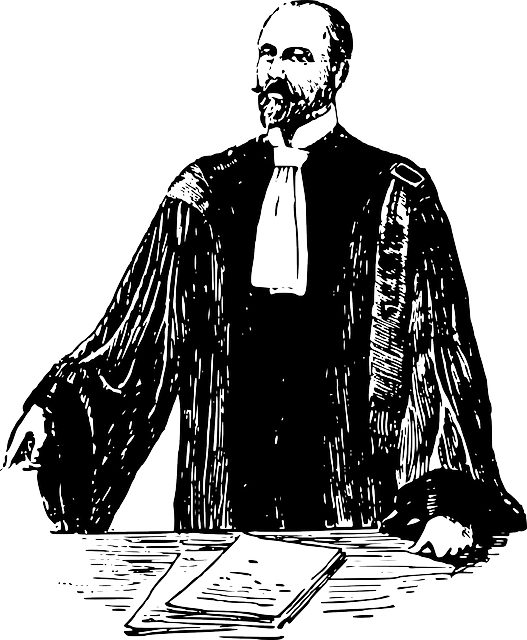Probate administration involves managing and distributing deceased individuals' estates, requiring legal expertise for compliance, tax efficiency, and strategic asset distribution. Specialized attorneys guide clients through emotional procedures, ensuring law adherence and minimizing taxes. Key aspects include meticulous record-keeping, proactive issue addressing, transparent communication, and optimized strategies for efficient estate distribution. The probate system aims to ensure fairness and protect all parties, with legal professionals safeguarding beneficiaries' rights and upholding the system's integrity.
Navigating the complex world of probate administration can be a daunting task without the right guidance. This comprehensive guide delves into the intricacies of probate, providing a clear understanding of its core components. We explore how legal expertise acts as a compass, guiding individuals through the complexities with precision. By employing strategic approaches to estate distribution, we highlight methods to ensure fairness and streamline the process. Furthermore, we emphasize the importance of protecting interests, ensuring compliance, and upholding justice in probate administration.
- Understanding Probate Administration: A Comprehensive Overview
- The Role of Legal Expertise in Navigating Complexities
- Strategies for Efficient Estate Distribution
- Protecting Interests: Ensuring Fairness and Compliance
Understanding Probate Administration: A Comprehensive Overview

Probate administration is a complex process that involves managing and distributing the estate of a deceased person according to their last will or, if there is none, the laws of intestacy. It’s a crucial step in ensuring that the wishes of the decedent are carried out while also protecting the interests of beneficiaries and settling any potential disputes. This intricate process includes several key stages: identifying and valuing assets, gathering financial records, paying outstanding debts and taxes, distributing property as per legal requirements or the terms of a will, and maintaining detailed records throughout.
Legal expertise plays an indispensable role in navigating probate administration. An attorney specializing in probate law can guide individuals and families through this often confusing and emotionally charged process, ensuring compliance with applicable laws and regulations. They help prepare and file necessary documents, represent clients during court hearings, and offer strategic advice on minimizing taxes and fees. With their knowledge of estate planning and the legal system, these professionals facilitate a smoother transition, providing peace of mind for those dealing with the loss of a loved one.
The Role of Legal Expertise in Navigating Complexities

Legal expertise plays a pivotal role in navigating the complexities of probate administration. It provides a roadmap through the intricate web of legal requirements, ensuring that every step is taken with precision and adherence to relevant laws. Probate attorneys possess a deep understanding of estate planning, will drafting, and asset distribution, which are crucial aspects of the process.
This expertise enables them to anticipate potential challenges, such as contested wills or complex property divisions, and develop strategic solutions. They guide clients through the emotional and often confusing process, offering clarity and peace of mind during what can be a difficult time. By leveraging their knowledge and skills, legal professionals facilitate a smoother probate administration, ultimately helping to expedite the transfer of assets to beneficiaries.
Strategies for Efficient Estate Distribution

Efficient estate distribution is a cornerstone of effective probate administration. Legal experts recommend several strategies to streamline this process. Firstly, meticulous record-keeping throughout the probate process ensures transparency and facilitates a smoother transfer of assets. Secondly, identifying and prioritizing debts and taxes early on helps in ensuring that these obligations are met promptly, preventing potential delays or legal complications later.
Additionally, engaging in open communication with all relevant parties, including beneficiaries and creditors, can help in managing expectations and addressing concerns proactively. This collaborative approach not only reduces the risk of disputes but also fosters a sense of trust and fairness among all involved. Utilizing advanced estate planning tools, such as trusts and will amendments, can also simplify distribution by clearly outlining asset allocation preferences and reducing the need for extensive court involvement during probate administration.
Protecting Interests: Ensuring Fairness and Compliance

The probate system, while intricate, is designed to ensure fairness and protect the interests of all involved parties. Legal expertise plays a pivotal role in navigating this complex landscape, especially when it comes to safeguarding the rights of beneficiaries. A skilled legal professional can guide executors and administrators through the intricacies of probate administration, ensuring compliance with legal requirements.
This includes proper valuation of assets, accurate preparation of documents, and adherence to time-sensitive deadlines. By upholding these standards, the system maintains its integrity, preventing potential disputes and ensuring that everyone receives what is rightfully theirs according to the deceased’s wishes.






